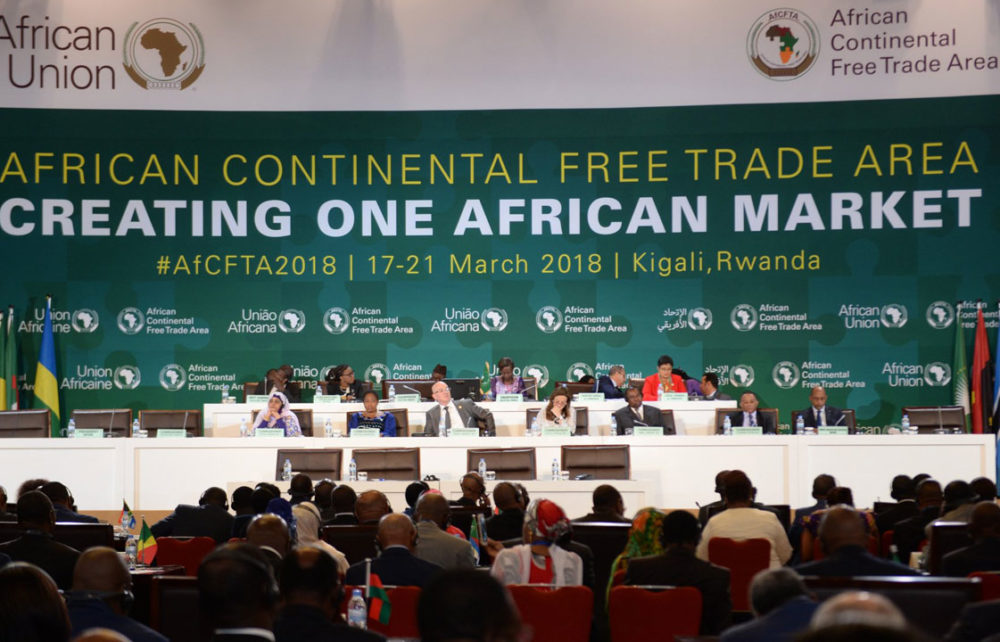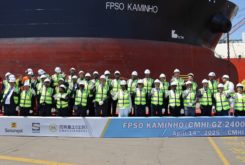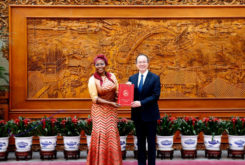African leaders at a summit Saturday approved that trading should start on 1 January next year as scheduled on the African Continental Free Trade Area (AfCFTA) agreement and requested.
“We call on women, youth, businesses, trade unions, civil society, cross border traders, the academia, the African Diaspora and other stakeholders to join us as governments in this historic endeavour of creating the Africa we want in line with the African Union Agenda 2063,” the leaders said in a declaration at the end of their 13th extraordinary summit of the member-states held virtually today.
The leaders re-affirmed their resolve to deepen continental integration through the AfCFTA and commended the contribution of the African Ministers of Trade for the preparations toward the launch of trading on 1 January 2021.
Speaking while opening the meeting, the Angolan President, João Lourenço, stressed the importance of advancing economic integration on the African continent, considering that the current level of trade is bellow potential.
“Angola considers it important to move forward with this process of economic integration at the level of the continent, taking into account the opportunities it offers for the integration of the Angolan business class in the most diverse productive sectors of the continent and, in this way, using this platform as a pole for attracting investments, both direct and on the stock exchange,”said the Angolan head of state during his speech at the Summit.
According to João Lourenço, in the scope of the agreement that created the African Continental Free Trade Area, Angola is “developing the internal process of elaborating the proposal for the dismantling of national tariffs, based on the negotiated modalities adopted for the trade of goods, and then establish the roadmap for trade in services”.
African Union Chairperson and South Africa’s President Mr. Cyril Ramaphosa said the commencement of trading would be one of the “most significant milestones” in the continental integration project and the clearest affirmation yet that Africa is determined to take charge of its own destiny.
Mr. Ramaphosa described the AfCFTA as the great edifice that holds Africa’s collective dreams and aspirations for an integrated and prosperous continent.
“The AfCFTA will boost intra-African trade, it will promote industrialization and competitiveness and contribute to job creation, and it will unleash regional value chains that will facilitate Africa’s meaningful integration into the global economy,” he said.
According to him, the AfCFTA should be used to advance the empowerment of Africa’s women, which is one of the most important objectives of continental body’s Agenda 2063 as improving women’s access to trade opportunities not only facilitates economic freedom for women, but also expands the productive capacity of countries.
President Ramaphosa also expressed gratitude to the United Nations Economic Commission for Africa (ECA) and other African Union partners for providing technical support to the continental initiative.
In his own speech, the Secretary-General of the AfCFTA Wamkele Mene joined some of the leaders to acknowledge the technical assistance provided member states by the ECA in the development of their National AfCFTA strategies.
The Director of ECA’s Regional Integration and Trade Division, Mr. Stephen Karingi, welcomed the outcomes of the summit saying, “The inclusion of health and education among the priority services sectors for liberalization under the AfCFTA in the light of the impact of the covid-19 pandemic have received a boost from the AfCFTA Champion, President Issoufou of Niger.”
“The decision to have December 2021 as common deadline for phase II and phase III negotiations shows the continent’s commitment to realize and lock in the e-commerce benefits early. We remain committed to working with the African Union and partners in achieving Africa’s integration agenda and in so doing, accelerating the implementation of the SDGs and Agenda 2063 – the Africa we want,” he added.




